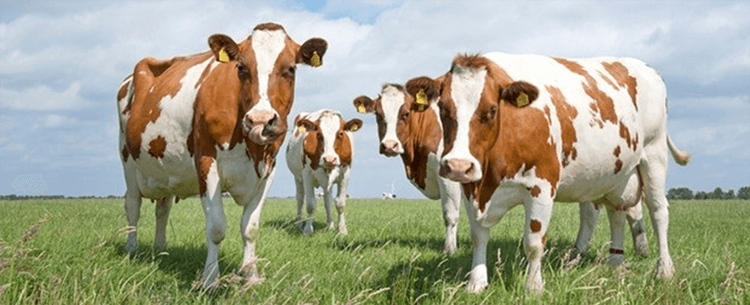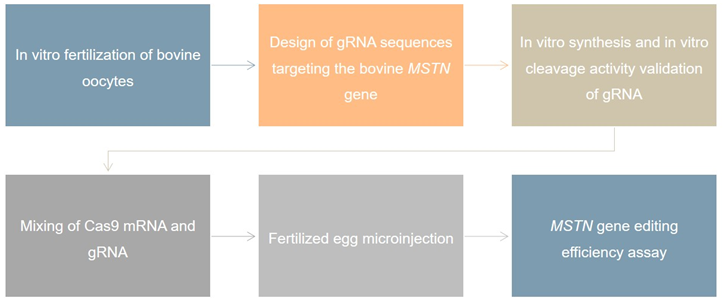Cattle refers broadly to Artiodactyla, family Bovidae, tribe Bovine, and narrowly to domestic cattle, usually, mostly large herbivorous animals, including yellow cattle, buffalo, and yaks, which are very important to humans, and these animals are generally referred to collectively as cattle.
Cattle are extremely important to human production activities because early farming relied heavily on the strength of cattle, and cow dung was also an important fertilizer, so it can be said that cattle and early agriculture are inextricably linked. Nowadays, beef has become a healthy food, containing the necessary nutrients for the human body, with high protein, low fat, and low cholesterol, which is popular in the market and has high economic value.

With the development of biotechnology, gene-editing technology has shown great promise in breeding rabbits, pigs, monkeys, sheep, and other animals. Currently, Lifeasible can provide bovine gene-editing services based on CRISPR/Cas9 technologies, and our technical services cover many aspects in cattle breeding, including improving disease resistance, improving milk quality, breeding high leanness, and dehorning cattle.
Since hornless cattle are of great value in modern intensive production, and dehorning after birth is a waste of human resources and contrary to animal survival ethics, Lifeasible can breed hornless cattle by introducing mutations identified at hornless loci into horned cattle fibroblasts through gene editing, and the resulting gene-edited cattle are all hornless and have no other symptoms.
Cattle with natural mutations in the MSTN gene have a double muscle trait, and their carcass weight, meat yield, and slaughter rate are significantly increased, and their lean meat rate is significantly higher than that of normal cattle.
MSTN is not only involved in regulating muscle growth and development, but also related to fat synthesis and catabolism, and also affects the role of sugar uptake in tissues, so Lifeasible can use CRISPR/Cas9 technology to knock out the MSTN gene in cattle, which not only increases the meat yield of livestock but also reduces the fat content, thus improving the meat quality traits of cattle.
 Figure 1. Process of cattle MSTN gene knockout using CRISPR/Cas9 technology.
Figure 1. Process of cattle MSTN gene knockout using CRISPR/Cas9 technology.
Outbreaks and epidemics of diseases such as BSE, bTB, and mastitis have not only caused huge losses to the cattle industry but also posed serious health risks to cattle workers and consumers.
However, the gene-editing technology provided by Lifeasible allows point mutation modification of the cattle genome and targeted knock-in of disease-resistance related genes, which can improve the disease resistance of cattle and even eradicate some epidemics, such as BSE.
References
Lifeasible has established a one-stop service platform for plants. In addition to obtaining customized solutions for plant genetic engineering, customers can also conduct follow-up analysis and research on plants through our analysis platform. The analytical services we provide include but are not limited to the following:
Get Latest Lifeasible News and Updates Directly to Your Inbox
Mechanisms Regulating Plant Chloroplast Biogenesis
April 15, 2025